Let me preface this by saying that I have no context of Black Panther beyond the movie. I’ve never read the comics, nor did I watch any of the other Marvel films he was featured in. I’m Black Gay abolitionist, engaging the film, purely as it was presented. Any gatekeepers of comics and “nerd-dom” can exit now if you have a problem with that. And note that this will be, by no means, an exhaustive review. Just me sharing some thoughts that I wanna put in one place.
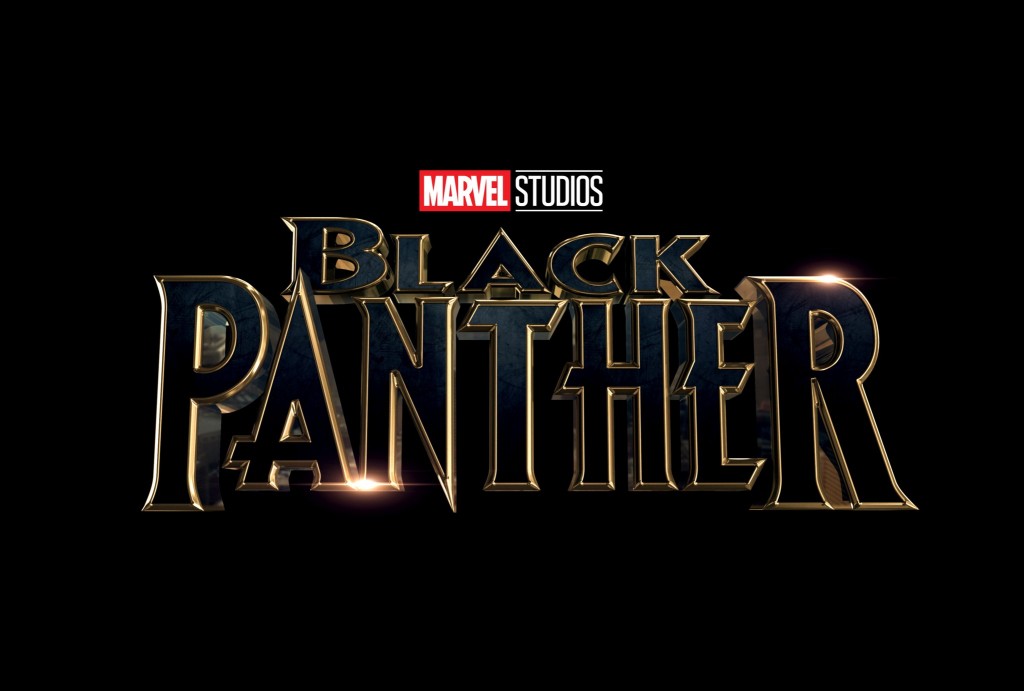
When I first watched and consumed Black Panther on opening night, I had to do so from different angles: entertainment-wise, and politically (hence the title). From purely an entertainment perspective? It was everything! Gorgeous imagery, wonderful effects, so much Black…and for the story they went with, it was very well told and executed. Let’s be clear this piece is not just me aimlessly bashing the film. Taking it in, purely as cinema, I’m a big fan…and will likely go watch it a couple more times.
That being said, engaging it from a political standpoint? Well…frankly, the politic conveyed was trash. Thoroughly. It didn’t really detract from my ability to enjoy the film from a cinematic perspective (because nuance), but…yeah, not good, at all.
Let’s just start with the fact that the leadership of Wakanda knowingly—and willingly—sat on Africans/Black people being colonized and oppressed all over the world for centuries and did absolutely nothing…even though they had the resources to help. They just didn’t wanna risk losing the privileges they hoarded for themselves. Right there, I’m already looking at these folks funny. To an extent, I understand the fear, but c’mon. You had spies all over the world. Y’all knew exactly what your people were going through. You had centuries to develop a game plan for liberation.
Come. On.
With regards to Erik Killmonger, there have been discussions around if he could really be considered radical or revolutionary. I think there’s much validity to that argument (as I’ll go into shortly). But I do think we can at least say that Erik, for all intents and purposes, represents an idea of a Black revolutionary politic, opposite T’Challa’s pacifism (and liberalism).
But also, there’s not nearly enough attention to how great Nakia’s politic is. She’s actually going out of Wakanda and personally helping vulnerable Africans…and doing so with a very methodical, nuanced and humanizing approach. It’s clear that she also doesn’t want to see this continued hoarding of resources and wealth. They were placed in direct opposition in the plot, but I feel like an ideal radical politic might be a combo of her methodology with a little bit of Erik’s aggression + sense of urgency.
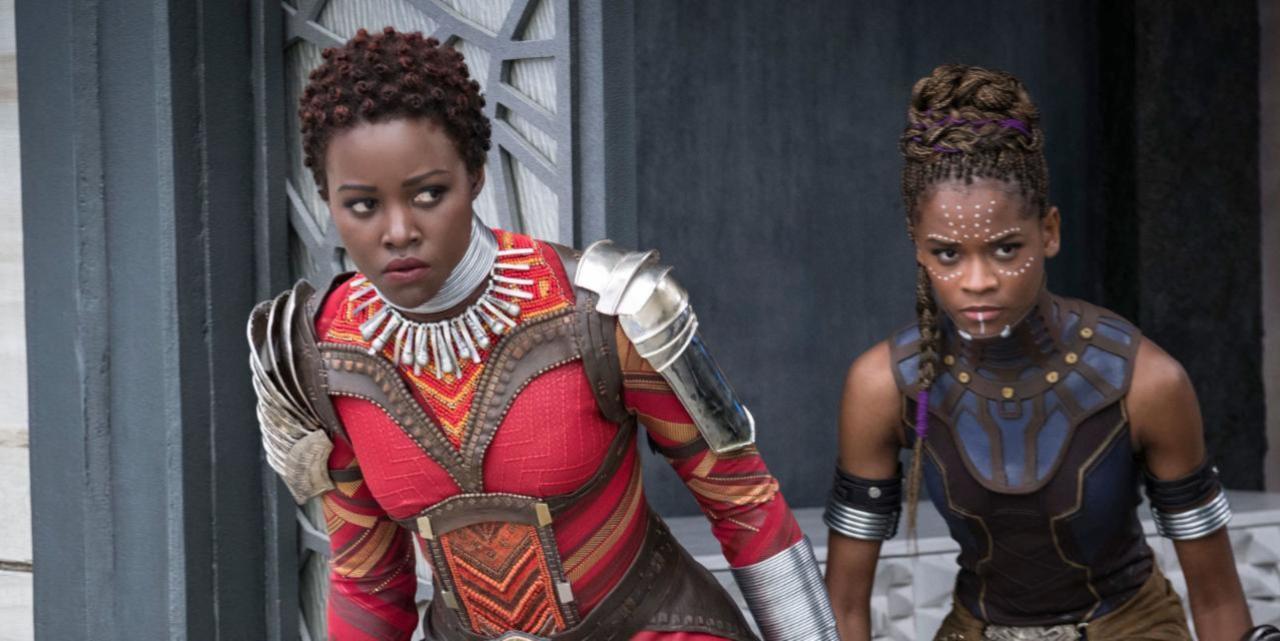
That being said, when Killmonger decides to go into business for himself and make it a point to use Wakanda’s resources (to which he had birthright) to liberate Black people all over the world? Well…I can’t really see that as inherently villainous. Frankly, distributing resources to oppressed peoples to take down their oppressor is some heroic, revolutionary shit (in and of itself).
Killmonger also showed astute understanding of white supremacy. He knew that we’re dealing with a violent, morally bankrupt system and it can’t be reasoned with nicely. Violent uprising is a necessary part (but not entirety) of dismantling a violent system. I know the respectable negros wish we could run from that basic fact forever but it’s reality.
Now granted, there’s still many, many criticisms to be made for Killmonger. His time in the U.S. military, for starters. Playing an instrumental role in expanding the very imperialist empire that he now wants to take down? Ehh. Also, it was pretty clear that, even if his political views were (mostly) sound, his interests were self-serving. I’ve seen some people comment that him destroying the all the heart-shaped herb was to dismantle the monarchy structure in Wakanda, but I think he just wanted to ensure that no one else could run the the nation but him.
Also, my politic is one that wants to see all colonized, oppressed peoples be free. I don’t simply want to see Black people replace white people as oppressors of the world. And I feel like that’s where things would’ve headed under a Killmonger. Also? I really can’t overlook that his willingness to choke an elderly Black woman to death as a clear red flag. My Black Gay self can also safely assume that any vision of Black liberation going through his head likely isn’t gonna be inclusive of me, or other LGBTQ people.
There’s much to be said for the insidious results of being raised and socialized through a capitalist, patriarchal system. We’ve seen, throughout history, how a lot of otherwise sound radical politics were deeply undercut by said socialization.
All that being said, this is a guy who was left behind to live through some of the worst effects of colonialism while his family got to live live high on the hog (while, again, hoarding life-saving, liberating resources). And none of that was his fault. On top of that, he also had to live without his father because T’Challa’s father, T’Chaka, killed him for having similar goals to liberate the diaspora.
Frankly, I’d be pissed and likely have a few ulterior motives too. Along with a sense of urgency to get shit done.
There’s, indeed, plenty of room for criticism of Killmonger, but honestly, if we’re comparing an intentionally pacifist politic to a revolutionary one? I have a far easier time buying into the latter (but I’d have questions…on top of questions).
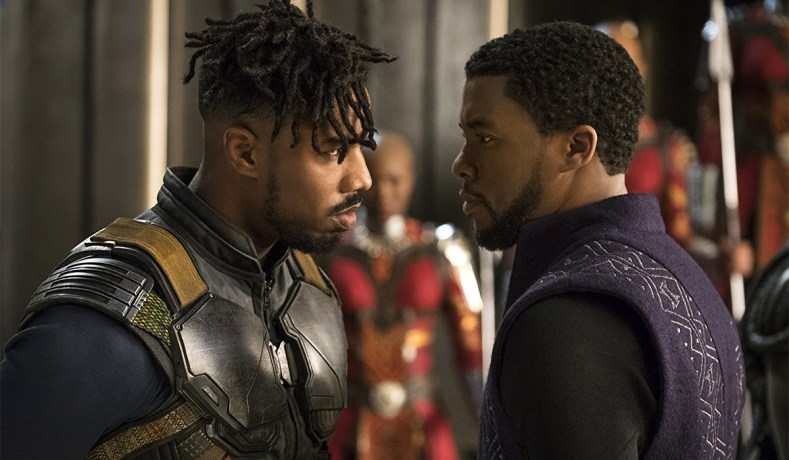
But in the end, T’Challa and company risked life and limb to ensure revolution didn’t pan out, by taking him down. And Killmonger knew his choices were either death or imprisonment (something that Black revolutionaries—and Black folks in america, in general—are all too familiar with). Far as I’m concerned, Killmonger had a few too many red flags for me to call him a decisive hero…but he’s certainly closer to it than T’Challa (and especially his cowardly ass daddy).
Aside: In real life, this is a film that was released in a capitalist system that still very much sees colonizers (shoutout to my twin in snark, Shuri!) calling the shots. This ultimately had to be green lit by white executives, and consumed by an audience that includes white people. Therefore, we just weren’t gonna see a Pro-Black revolution be painted as anything heroic.
And speaking of coddling colonizers…
Can we talk about this dude Everett? It really didn’t sit well with me that, while Wakandans have been hiding themselves (and their vast resources) from billions of oppressed and colonized Africans, they’d then turn around and allow this colonizer—and whole-ass CIA agent—to, not only gain entry to their land, but also be given a life-saving vibranium treatment?
Like…way to not learn a damn thing from the history of colonialism (and no…I don’t care that he took a bullet for Nakia).
What’s also striking, to me, is that, even in a movie that was THIS Black, we still couldn’t entirely escape the “white savior complex.” Mind you, it wasn’t nearly as bad in Black Panther as it was in other movies (hello, Hidden Figures). At least it was very clear that the Black citizens (women, primarily) were in charge and he was along for the ride. But watching a Black revolutionary mission be taken down, with Africans killed, by a white man, under the guidance of Africans, was cringeworthy.
In the end, T’Challa’s idea of liberating Black people was going into the inner cities and opening up community centers and shit. And a slew of other very “familiar” ideas that require working within the existing white supremacist system, rather than dismantling it (which, again, they have the resources to do). The same system that literally sustains itself on the oppression of Black (and Brown) people everywhere. History has already proven, time and time again, that liberal, reformist solutions have an extremely limited ceiling, especially when not implemented in conjunction with more radical ideas. But I guess it’ll be different this time if we just throw some vibranium on it, huh?
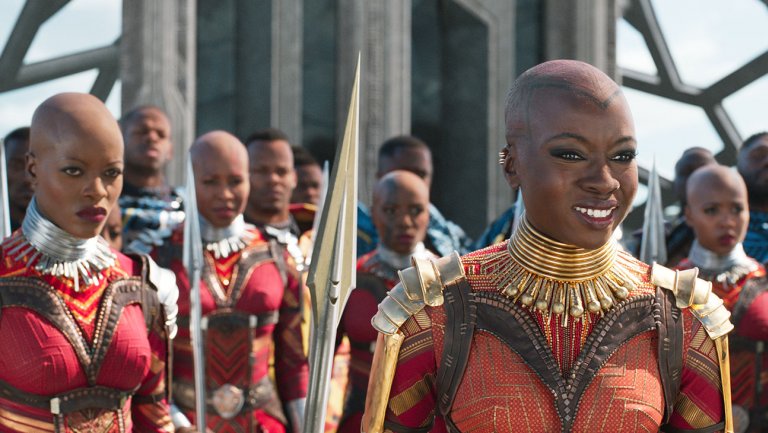
I felt like Black Panther was an illustration of the toxicity of Black liberalism, in relation Black radicalism. How liberalism always wins out because it’s more palatable and accommodating for whiteness. It speaks to how, only in a white supremacist capitalist system, could a Black man demanding immediate freedom for all people like him be deemed inherently “extreme” or “villainous.” And liberalism coddles that kind of an anti-Black system, most every step of the way. It bends over backwards to silence Black radical resistance, while simultaneously protecting and kissing up to whiteness, begging for its approval (which will never come).
Even outside of the movie, itself, I (and many other Black leftists) have also been critical of Black liberals’ usage of imagery from the actual Black Panther Party as a way of signaling “wokeness” while completely rejecting BPP’s radical politic (and the Black Panther cast & crew are no exception to this). And watching how this film made crushing Black radicalism into a central plot point, it just feels like this was embodied even further.
From a storytelling perspective, I do think they did a nice job of nuancing the characters, to where you can sympathize with Killmonger (and his father), yet have at least a hint of resentment toward the “protagonists.” But again, if I’m engaging this from a political point-of-view, I find it sad (and disgusting) that they would present a revolutionary politic as any kind of antagonism, to begin with…especially considering that we already get more than enough of that from white media, on a constant basis.
How wild is it that, even in a nation that was supposedly never touched by colonialism, it could still, so thoroughly, succumb to many of its trappings? And even beyond that, what does it say that, even in a fantasy world, where African people (supposedly free of colonialism) are centered, AND have the means to feasibly free all African people…true Black liberation is still treated as an unreasonable and unrealistic pipe dream?
If I felt like that kind of meta commentary was intentional from Ryan Coogler and company, I’d applaud Black Panther as a political statement (just as I applaud it as a cinematic marvel…no pun intended). But I don’t think they truly intended to be that deep with the social commentary of this movie. When it comes right down to it, I think they had white executives to answer to and keep happy (on top of the fact that a room full of affluent Black liberals would likely harbor some terrible politics, themselves). So…here we are.
Liberalism—the graveyard for progressive, radical ideas—prevails again.
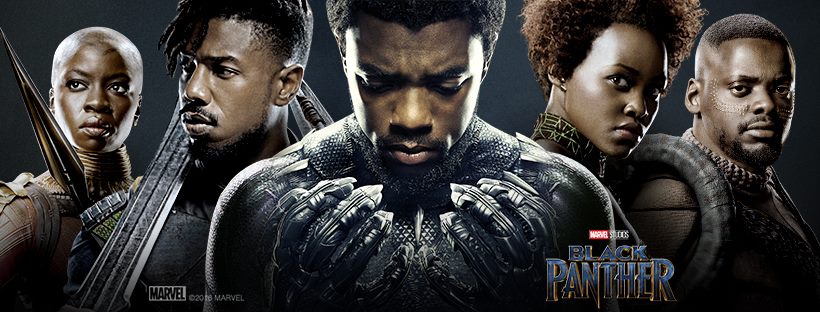
One more thing that needs to be highlighted (because it can’t not be in my space):
Another thing that strikes me as odd is, in a land where colonialism’s influence is supposedly never felt, Wakanda doesn’t seem so great with totally subverting colonial gender ideals at all. Granted, the movie’s depiction of Black women was largely incredible. But it still felt like it was being done through a cis-heteronormative lens. Surely a non-colonized land would have some kind of clear non-binary/gender non-conforming presence. And the blatant case of Queer erasure that took place in this movie doesn’t help matters, at all.
Yet another big, Black moment, where we constantly are hearing about how crucial representation is……yet the LGBTQ contingent of the diaspora is told to wait on the sidelines. Again. Meh.
And look, for all of you (including the self-hating Black Gays) who will claim that Black LGBTQ people don’t need “blatant” representation; that we can’t “assume” there weren’t Queer/Trans folks in there? Let’s be real, here. Yes, it’s absolutely true that we shouldn’t assume anyone’s sexual and gender identities…BUT THAT’S LITERALLY WHAT SOCIETY DOES. We all know, good and well, that cisgender heterosexuality is considered the default in a patriarchal system. In most any case, LGBTQ folks are not assumed to even exist. That’s how most all of the world currently operates. Therefore, when you don’t specifically show and name Queerness and Transness, the world will automatically assume cis-hetero. This is a major way that LGBTQ erasure is enabled and it’s extremely prevalent in Black media…this film, included.
Fact of the matter is, you can’t scream about how “representation matters” and how it’s so important that people see clear, affirming, and positive images of ourselves (that are easily accessible), but then try and justify Black LGBTQ folks settling for less. If the very idea of people wanting intentional inclusion of Black LGBTQ people in highly-visible Black art bothers you so much, I’d implore you to do much internal interrogation to figure out why (Oh look! I have a whole-ass series of posts that might help you along).
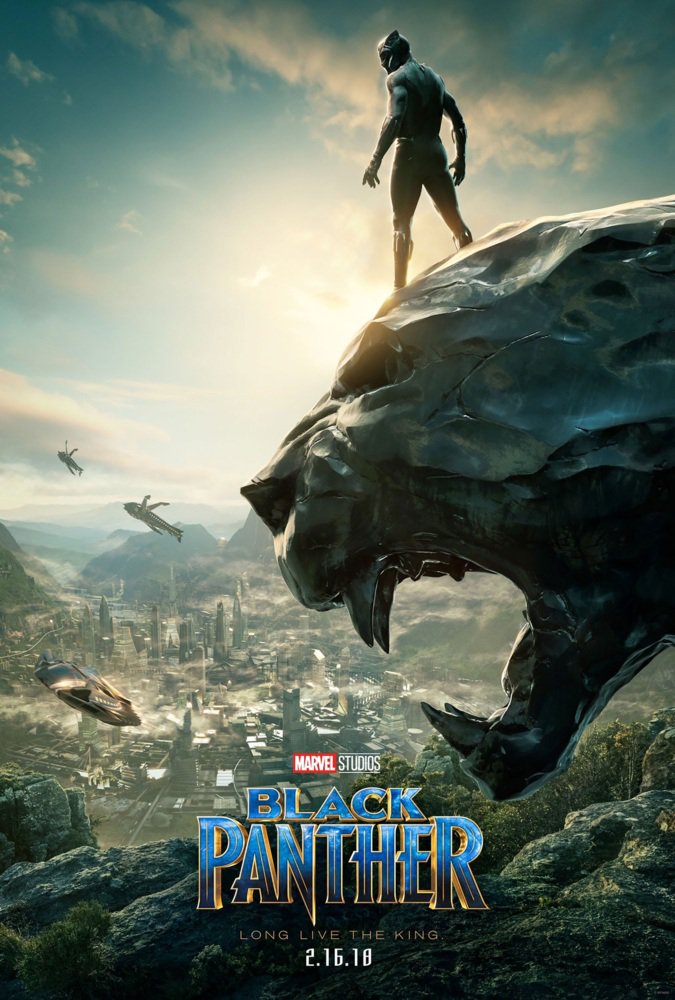
Again, I don’t want it to be lost in all of the criticism that, as a movie, I absolutely loved Black Panther. This was an important, wonderful work that came at a time where marginalized folks need as much to be excited about as we can. And it’s been so fun watching Black people have a moment where we can come together and have a major, blockbuster film where we’re centered and it’s about us. I’m fully here for us soaking this all in and enjoying it as much as possible. I’m not taking anything away from how important this moment is. But when it’s all said and done, nothing is immune from nuanced, earnest dissection and critique.
Some people might respond to “thinkpieces” like these with (headass) takes that we shouldn’t politicize Black Panther and just enjoy it. But the plot of the film is centered around politicized Blackness, and it’s directly based on real-world struggle. How can political commentary not apply, there? Also, if we’re insisting on the idea that representation is a pillar of Black liberation, then how can we not interrogate the sociopolitical undertones and ramifications of said representation? “Representation matters,” so the way that it’s presented would clearly carry some real-world impact beyond just entertainment, right? Therefore, it’s actually imperative that we critically engage and examine these things…even as we praise them.
Just because something works doesn’t mean it can’t be improved.
-Shuri
…
One more thing! I have to highlight my absolute favorite part of Black Panther:
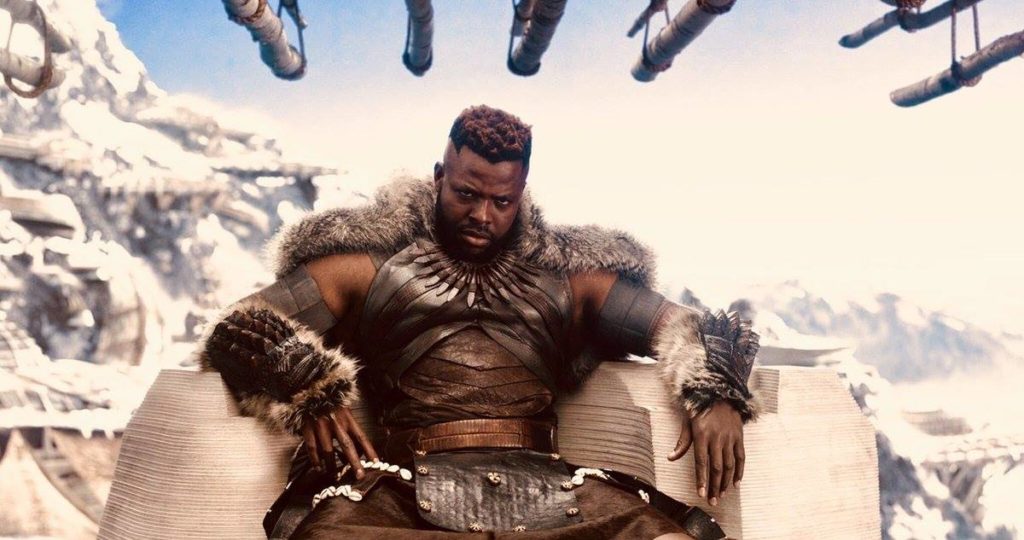
M’Baku (Winston Duke) is ridiculously fine. Like…good GAWD.
(But really, the dude lowkey stole the show among the male characters. He has a real aura about him (beyond his ridiculously good looks). Dude owned damn near every scene he was in…especially when he was able to show some comedic chops in the latter part of the movie.
I STAN!)
If you enjoyed this post or any of my other work, consider buying me some bourbon!
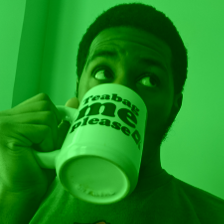
Very interesting and complete piece! I think one way to think about the inaction of Wakandans through slavery, segragation, colonization, mass incarceration, etc. could be the fact that an African nation that was never colonized would probably never see itself as Black, and that might explain why they didn’t feel the urge to help Black people abroad, because to them, Black people abroad are not “like” them, they’re not one of them, the same way that white, Arab, South Asian, etc. people are not like them. Remember that the concept of blackness and Black diaspora begins with the creation of a concept of race, a concept created by Europeans. Therefore, an uncolonized African nation probably wouldn’t classify itself in terms of race, they probably only saw themselves as either Wakandan or not, and then as whichever tribe they belonged in, the same way that pre-colonial tribes throughout Africa never saw themselves as “Black” until the arrival of Europeans. So to them, sitting through slavery seemed equal to sitting through the holocaust and the ethnic cleansing in Laos. They didn’t see it as “we need to help our people abroad” they probably saw it as “the only people we care about are Wakandans and we don’t care for interventionism”. They may have known about the construct of race which dominated the outside world, but they probably didn’t think “us and other Africans are Black” but instead “Europeans came up with this category and they would classify us as Black”. This would explain why Killmonger felt the urgency that other Wakandans didn’t feel because he was raised in a racialized system, so he did see himself as Black, and thus he felt unified to the Black struggle around the world because he grew up around it.
I’d be interested to know what exactly T’Challa’s father, T’Chaka, was doing during the de-colonization and Pan-Africanism of the latter 20th century